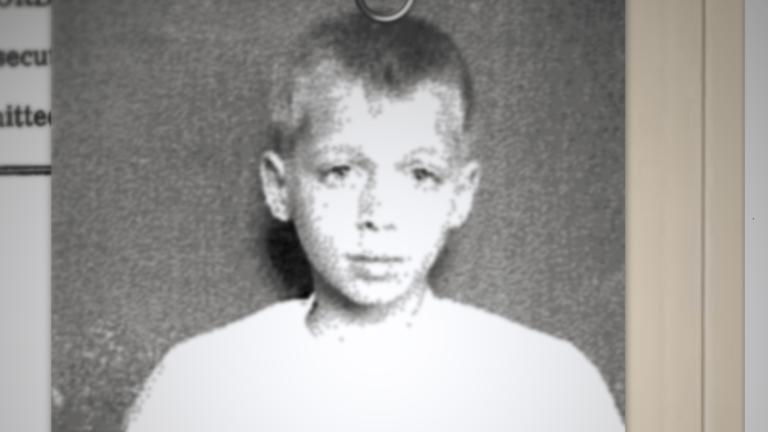This release is more than two years old
This release is more than two years old. For additional information, please contact Amanda Gaudes from our Media Relations team.
News release details
Why do we allow the most vulnerable people in our society to be dehumanized? And what happens when a dark family secret, long hidden, emerges? Filmmaker Barri Cohen explores these questions in her documentary Unloved: Huronia’s Forgotten Children.
Cohen will take part in a panel discussion following the screening of the documentary at the Canadian Museum for Human Rights on Sunday, December 3, which is the International Day of Persons with Disabilities. She will be joined at the event, which runs from 1:30–4 p.m. in the Manitoba Teachers’ Society Classrooms, by other advocates working on behalf of those who have been labeled with intellectual or developmental disabilities.
Unloved is the result of a journey Cohen undertook to discover the stories of her two half‐brothers, Alfie and Louis, who were institutionalized at the Huronia Regional Centre in Orillia, Ontario – a place with a notorious reputation for overcrowding, unsanitary conditions and harsh treatment. Both brothers died there, one as a small child who was buried in secret in an unmarked grave.
The film sheds light on this family story and includes the stories of other Huronia survivors who speak of the cruel treatment they suffered. Huronia was one of many institutions in Canada, the United States and the United Kingdom for children labelled as intellectually disabled. Parents were encouraged to send them to institutions for care – but the children often experienced cruelty, exploitation and abuse.
A class‐action lawsuit sought redress for the pain, suffering, abuse and neglect of thousands of children and youth institutionalized at Huronia from 1945 to 2009. In 2013, an out‐of‐court settlement included reparations for survivors from 15 similar institutions across Ontario, and then‐Premier Kathleen Wynne apologized on behalf of the Province to the former residents of Huronia.
The discussion is particularly relevant in Manitoba, where the Manitoba Developmental Centre (MDC) – an institution for those deemed intellectually disabled – is set to close in 2024 after more than 130 years of operation. Originally called the Home for Incurables, the institution is located in Portage la Prairie. Advocates have long been calling for an end to institutionalization and for all residents to move to more dignified care in community‐based, supportive settings. A class‐action suit, launched in 2018, alleged abuse and neglect of residents and resulted in a $17 million settlement.
Event Panelists
Barri Cohen is an award‐winning writer, director and producer of independent documentaries and television series across a range of genres for specialty audiences in Canada and around the world. Prior to Unloved, she coproduced the Emmy‐nominated feature documentary, Toxic Beauty, and co‐founded the Hot Docs International Documentary Film Festival in Toronto. She is currently developing a family drama series, writing a memoir collection and studying psychoanalysis.
Shelley Fletcher is Executive Director of People First of Canada, the national voice for people who have been labeled with an intellectual or developmental disability. The organization focuses on human rights, citizenship rights, accommodation rights and language rights. Members see themselves as self‐advocates and full citizens, living equally in the community, and believe in the right to freedom, choice and equality for all.
Kevin Johnson participates in many organizations, including on the board of People First Canada and in the Advisory Committee for Closing Institutions in Manitoba. Kevin is passionate about reaching out to educate and support the community and make a difference. He co‐produced on the documentary Freedom Tour.
Moderator: Madeline Burghardt is Assistant Professor in the Department of Occupational Therapy in the College of Rehabilitation Sciences at the University of Manitoba. The author of Broken: Institutions, Families, and the Construction of Intellectual Disability (McGill-Queen’s University Press, 2018), Madeline has worked extensively with people labelled with intellectual disabilities in professional and artistic capacities and is an ally of the institutional survivor community. She is a member of the St. Amant Research Centre team and is part of the Participatory Advocacy Research Network, an academic‐activist allyship devoted to strengthening participatory research capacities within the intellectual disability community.
The screening and panel discussion are free and open to the public.
Interviews with Barri Cohen and other panelists can be arranged.
This release is more than two years old
This release is more than two years old. For additional information, please contact Amanda Gaudes from our Media Relations team.
